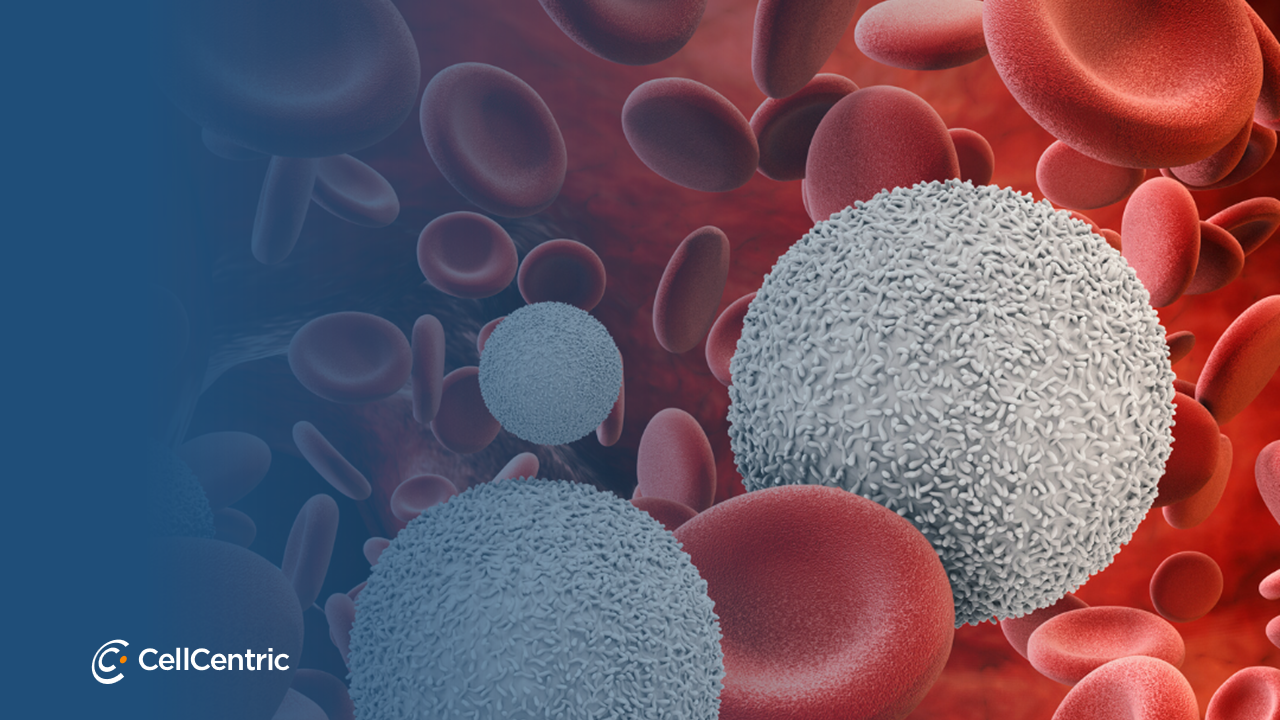- CellCentric and Pfizer enter a strategic investment to support CellCentric’s development of inobrodib, a pioneering oral p300/CBP inhibitor.
- Most advanced data in relapsed refractory multiple myeloma (RRMM), with scope for additional monotherapy and combination studies in RRMM and specific haem settings in 2024.
- Astrid Ruefli-Brasse, Vice President, Tumour Biology, Pfizer Worldwide Research & Development, will join CellCentric’s Scientific Advisory Board.
Cambridge, UK, July 11, 2023: CellCentric, an innovative UK-based biotechnology company, today announces a strategic investment from Pfizer including $25m to help finance further development of inobrodib, its first-in-class p300/CBP inhibitor to treat specific types of cancer. Pfizer will support CellCentric with its own clinical development program in multiple myeloma (MM) for 2024, alongside ongoing trials in specific haematological malignancies, through its Pfizer Ignite offering.
As part of the collaboration, Astrid Ruefli-Brasse, Vice President, Tumour Biology, Pfizer Worldwide Research & Development, will join CellCentric’s Scientific Advisory Board and Sriram Krishnaswami, Vice President and Development Head, Multiple Myeloma, Pfizer Global Product Development, will serve as an advisor to CellCentric.
Today’s agreement follows the US Food and Drug Administration’s (FDA) recent granting of a Fast Track designation for inobrodib to treat patients with late-stage relapsed refractory multiple myeloma (RRMM) and orphan drug designation in MM. CellCentric’s ongoing blood cancer trial (NCT04068597) involves patients with a range of haematological malignancies including multiple myeloma, but also non-Hodgkin lymphoma, acute myeloid leukaemia, and higher-risk myelodysplastic syndrome (MDS).
CellCentric plans to announce its expansion cohort data at the 65th ASH Annual Meeting and Exposition which will take place December 9-12, 2023, in San Diego. This will include data from a trial of inobrodib both as a monotherapy and in combination with pomalidomide and plus dexamethasone.
“We are delighted to partner with Pfizer to facilitate planning an optimal route to market for inobrodib. This agreement will enable us to build on the strong early clinical data observed to date in RRMM patients” said Will West, CEO and Co-founder, CellCentric. “We look forward to making inobrodib available to a broader population of patients, particularly those who are underserved by existing therapies.”
“Today’s agreement with CellCentric will help deliver the next phase of clinical trials for inobrodib, and we look forward to sharing our capabilities and deep understanding of the science behind blood cancers to support the development of this program,” said Astrid Ruefli-Brasse, Vice President, Tumour Biology, Pfizer. “We believe CellCentric’s pioneering work to develop a therapeutic that targets p300/CBP represents a potentially significant new treatment option for patients living with multiple myeloma.”
Pfizer Ignite is a new end-to-end service for biotech companies with high potential early science that leverages Pfizer’s significant R&D capabilities, scale and expertise to accelerate the development of breakthrough therapies.
About inobrodib
Inobrodib works by binding to a specific part of proteins p300 and CBP (bromodomain). It is highly selective and does not impact similar pockets on other proteins. Through this action inobrodib reduces the expression of key cancer drivers: IRF4, MYC, and the androgen receptor (AR and its variants).
It is a new type of treatment for people with cancer. Delivered as an oral capsule, it is easy for patients to take and can be used at home without the need for intensive monitoring. As it has a good safety profile for a drug in this setting, it can also be used by those who are unable to tolerate other treatments, including the elderly and frail. This potentially represents a significant benefit over existing treatment options as it enables a wider range of patients to be treated, including those who want to be treated closer to home. Being an oral capsule, it has the potential to present a lower overall burden on the healthcare system as compared to more complex therapies, such as cell-based therapies.
In June 2023, CellCentric was granted orphan drug and fast track designation status from the FDA for inobrodib.
About CellCentric
CellCentric is an innovative UK-based biotechnology company with offices in Cambridge and Manchester. The company was spun out from the University of Cambridge, by pioneering developmental biologist Professor Azim Surani FRS, CBE, who wanted to further explore the potential of epigenetics to deliver new treatments. From its origins, CellCentric built a network of research and evaluation relationships with over 25 leading academic research groups worldwide.
CellCentric’s research evolved to focus on twin acetyl transferase proteins, p300 and CBP, that act as transcription co-activation factors, and that drive the expression of genes important in cancer progression. CellCentric has investigated over 50 epigenetic-related targets as new ways to treat disease, and specifically cancer. The company actively pursued multiple drug discovery programmes before focusing on p300/CBP inhibition and inobrodib.
From research to drug development, the growth of CellCentric reflects its ability to harness academic and research ecosystems to deliver real world treatments for patients.




